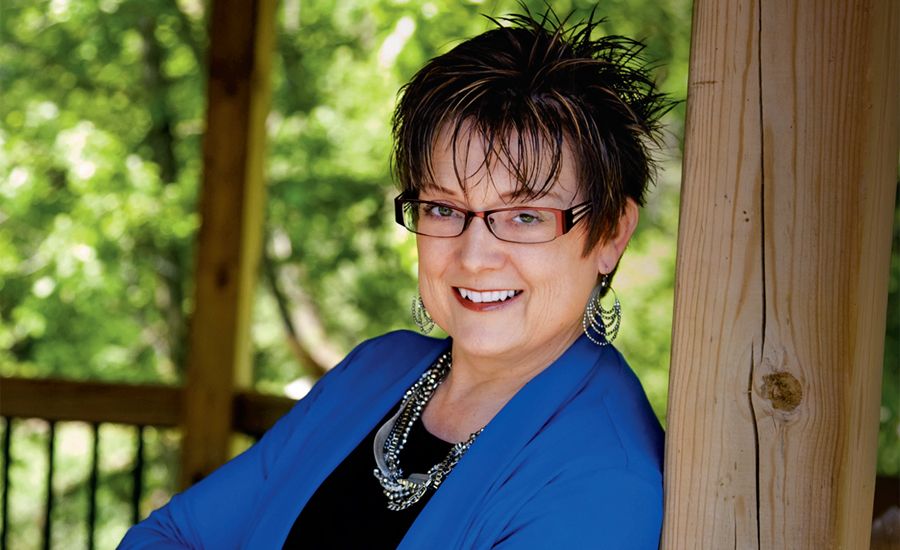For 10 years my husband, Dan, and I took care of our aging parents. First Dan’s father, Norman, moved into what had been our guest room. He needed help dealing with Parkinson’s disease and depression. He lived with us until his health became too precarious and he moved to a veterans’ facility.
By then my mom’s Alzheimer’s had worsened so much that my dad couldn’t look after her on his own. So they took over Norman’s room. It was a privilege to be able to care for the people we loved most. But it was also a struggle. To avoid burnout, I had to learn to take care of my own needs.
Here are five ways to care for yourself spiritually so you can be a better caregiver for your loved ones:
Get help. Reach out to relatives, your church family, neighbors, friends. Make use of community services. Almost every area has an agency dealing with aging; look in the phone book or on eldercare.gov. A caseworker can give your loved one an assessment and connect you with the services your family qualifies for.
We got a small stipend to cover some of Norman’s expenses. Later we found a great day-care program for Mom. It even had a bus that came and picked her up.
Don’t be afraid to ask for help. Our neighbor Amanda had five children yet volunteered to lend a hand whenever I needed. At first, I worried that I was imposing on her. Soon I saw that Amanda liked having a change in her routine. She’d come over with a few of her kids. My mom would coo over the baby and Dad loved playing catch in the backyard with the older ones.
Be specific when people offer to step in. Let them know exactly what you need, whether it’s housecleaning or getting a few things at the supermarket or sitting with your loved one. You’re giving them an opportunity to give.
Take breaks. Caregiving is a demanding job. As with any job, you can’t be at it 24 hours a day and expect to do it well. You need to get away, even for just an hour or two. Dan and I love riding motorcycles. I got him a Harley Ultra Classic, the bike of his dreams. When Mom was at day care, Dad usually went with her. Those were the times Dan and I would hop on the Harley.
We discovered dirt roads and small towns that I never knew existed. We’d stop and have a picnic or just take a nap in the sun. Sometimes I’d visit my daughter at her cabin. Or I’d jump in a friend’s hot tub—“drop by anytime,” she’d urged—and linger in the warm water, enjoying the respite.
There is incalculable value in being in a different place, away from the demands of caregiving. At home I’d be tempted to tackle the laundry, pay the bills, do something useful. Getting away was essential for my well-being.
Be honest with God. One winter day, I was out in the driveway with a shovel, whacking away at a clump of ice that had formed beneath the gutter. As the ice cracked, something in me did too. “I can’t do this anymore!” I cried out to God. “I don’t have the strength. Find someone else!”
The larger portion of the caregiving had fallen to me because Dan worked full-time and was home less than I was. But I had a part-time job. Didn’t anyone notice that I was squeezing my work in with all the other duties I’d taken on?
I loved Dan’s dad and I loved my parents, but I felt taken for granted. I was like Marie from Everybody Loves Raymond—playing the martyr, waiting for someone to congratulate me.
Caregiving brings out both the best and the worst in us. That I could get so angry with God was a surprise to me. But it was no surprise to him. He knew my weaknesses. He was big enough to hear my anger and loving enough to show me how to move beyond it.
Savor the egg-salad moments. There will be plenty of tears. Enjoy and remember the times of love, laughter and connection so you can draw on them later. I call them egg-salad moments because of one day Mom and I made lunch together.
Mom stood beside me at the kitchen sink, peeling hard-boiled eggs. It took her 10 minutes to pick every last bit of shell off an egg, but she remained focused on the task, unusual at that stage of Alzheimer’s. We chopped up the eggs.
“Am I doing this right?” she asked.
“You sure are,” I said, stirring in the remaining ingredients.
“What is this?” she asked.
“Egg salad. Just the way you like it, with mustard, relish and Miracle Whip.”
“I didn’t know I liked egg salad,” Mom said.
I gave her a spoonful. “Try it.”
She took a taste and closed her eyes in delight. “I like it,” she said, her voice full of wonder.
Moments like that, little things like the scent of moisturizer as I gently massaged it into Mom’s skin, the smile that dawned on her face when I offered her ice cream, giggling over an I Love Lucy rerun together—that’s what I treasured.
Turn to Scripture. I’ve never been great at memorizing Bible passages, so I wrote some of my favorites on index cards and left them around the house. That way I could turn to them when stress got to me.
There was a verse from Psalms—“Search me, O God, and know my heart. Try me and know my thoughts”—on the kitchen counter. Another at my computer: “Restore to me the joy of thy salvation, and uphold me with a willing spirit.”
I kept a few Scripture cards in my pocket. The start of the day could be rough. Sometimes it took forever to get Dan’s father to take his medication or to get my mother dressed. If I felt my patience wearing thin, I’d pull out a card and read the verse. A one-minute (or less) meditation that calmed my spirit.
Caregiving is redemptive work. You learn to let go of your pride, focus on what’s most important and call on the source of strength that never fails. As one of my Scripture cards reminds me, “We look not to the things that are seen but to the things that are unseen; for the things that are seen are transient, but the things that are unseen are eternal” (II Corinthians 4:18).

Did you enjoy this story? Subscribe to Guideposts magazine.






